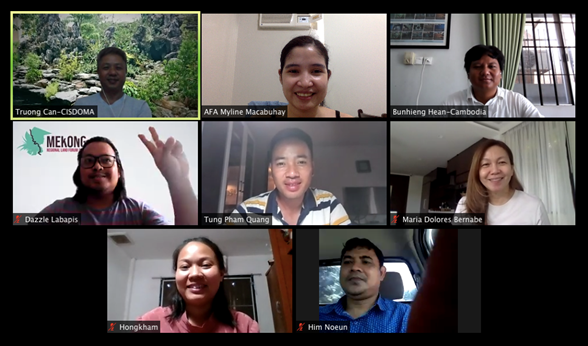Over the past few years, progress has been made in the areas of land tenure and safeguards at the ASEAN (regional) level, particularly in the Mekong sub-region. Both customary tenure (CT) and free prior informed consent (FPIC) have been recognized as key indicators for responsible investment in food, agriculture, and forestry. However, despite these developments, several challenges remain. For customary forest tenure, access and ownership are still conditional and restricted in several cases. Land conflicts remain high. Further, cases of encroachments in customary lands and forests threaten customary rights and impede traditional livelihood and customary conservation and resource management practices.
Building on these gains and recognizing existing challenges, it is vital to continue amplifying the work towards the development, adoption, and implementation of CT recognition and the use of safeguards such as FPIC in securing rights over customary forest tenure in the Mekong region. As such, the Asian Farmers Association for Sustainable Rural Development (AFA) participated in an alliance with the Non-Timber Forest Product Exchange Program (NTFP-EP), the Asia Indigenous Peoples’ Pact (AIPP), and the Center for People and Forests (RECOFTC) in the project, “Strengthening regional mechanisms and capacities in engaging, implementing, and adopting CT recognition and FPIC as safeguards in the Mekong region”.
In particular, AFA will investigate the status of CT recognition and implementation in the context of and livelihoods and food security in ASEAN, particularly in Mekong countries. It is envisioned to generate information and learning that can serve as input in the development of ASEAN guidelines and policy on CT recognition in a way that supports the region’s commitment to deliver on livelihoods and food security goals.
Case studies will be undertaken to get data on CT recognition and food security from select communities in Lao, Cambodia, and Vietnam. To jumpstart the case study data collection activities, AFA organized a 2-day online orientation-planning with case study researchers from Farmer and Nature Net (FNN), Lao Farmers’ Network (LFN), and Consultative Institute for Socio-Economic Development of Rural and Mountainous Areas (CISDOMA) on May 28 and 31, 2021. The activity aimed to:
- Introduce the partners to the MRLG Customary Tenure Research Project of AFA
- Present the draft study plan for the research project and collect inputs/ insights from project partners
- Orient project partners on the data collection strategies/ approaches to be conducted in line with the project
- Develop national-level implementation plans, including target sites for field data collection
- Discuss the roles and responsibilities of project team members
The orientation planning started with a presentation by Ms. Myline Macabuhay, AFA land rights coordinator, on the project rationale and objectives. This was followed by a discussion on the study plan and data collection tools facilitated by Ms. Riza Bernabe, the project consultant. At the end of the activity, the partners identified target sites for community data collection and drafted their respective implementation plans. Mr. Dazzle Labapis and Ms. Femy Pinto of NTFP-EP also joined the activity.
The results of the case study will be presented in a regional learning exchange/ forum on CT and inclusive governance mechanisms which will be held by the fourth quarter of the year.




Comments are closed